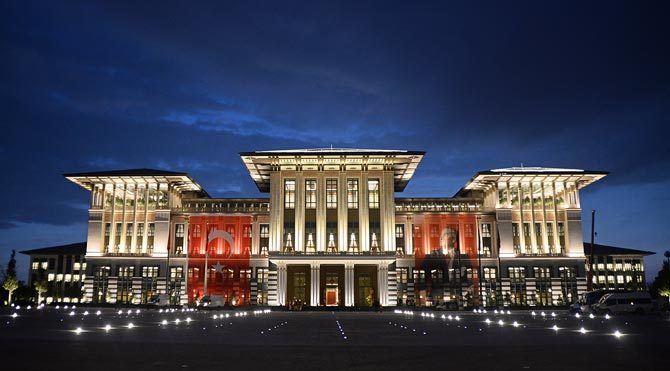RECESSION
Turkey went into recession at the end of last year, according to the state’s official statistics the economy shrank by 2.4% in the fourth quarter of 2018, following a 1.6% drop the previous quarter, making two quarters of declining growth – the definition of recession. Turkey’s lira fell by 30% against the dollar last year, making imports on average a third more expensive. That prompted the central bank to raise interest rates, making borrowing more expensive.
Instead the economy suffered something closer to a system crash. Excessive lending, mostly guaranteed by the government, contributed to rising inflation and a widening current-account deficit.
WAR TRADE
When the government fell out with Donald Trump over the arrest of an American pastor working in Anatolia, foreign investors (and many Turkish depositors) lost their nerve. Turkey’s currency, the lira, fell by 40% against the dollar in the first eight months of 2018. Just as was the case in the years 2015 and 2016, the amount of discretionary funds used by the president did not make its way into the Court of Accounts report but, around 36 million Turkish Lira was spent in 2017 for representation and entertainment activities at the palace that are organized at the order of Erdoğan.
The trade war with the US caused a steep fall in Turkey’s currency, making imports far more expensive. Turkey still plans to buy Russian missile defence systems and how to punish the alleged plotters of a failed coup in Turkey in 2016 which attempted to topple President Recep Tayyip Erdogan. This runs along with Turkeys memorable, pathetic deficit to defeat the PKK; who are currently advancing against the Turkish State’s expensive armoury with Kalashnikovs.
LUXURIOUS LIFESTYLES
Erdogan, whose palace costs over $600 million, is formed of 1,000 rooms and has a daily expense bill of $300,000, has dragged the countries economy into slumpflation in order to maintain an exploitative position. Here’s how: the war with the PKK would have ended very quickly, had they been granted basic, democratic human rights. Instead, the Turkish State chooses to buy the Russian S400 which costs $500 million; If we bear in mind that Turkey has signed a contract to buy Eight of these, that would mean that it has spent $4 billion on these aircrafts alone. And this is only a small addition to its armoury.
The policies of the Turkish state are simple in regards to its corruption. The people are constantly in a state of fear through special warfare tactics. The solution provided to the public is fascism, allowing the state to be supported in buying excessive armour and thus covering the tracks of laundered money.
Turkey’s finance minister, Berat Albayrak, said the worst was over and he expects the economy to return to growth by the end of this year. But analysts at Capital Economics expect the economy to perform poorly this year. “the weak carryover means that we expect GDP to decline by 2.5% this year,” the firm said in a research note.
UNEMPLOYMENT
Turkey’s unemployment rate rose to 14.7 percent in the January-March 2019 period from 10.6 percent in the same period of the previous year and remaining the highest jobless rate since the February-April period of 2009.
The number of unemployed people flew by 3.354 million in period of January till March, while employment decreased by 831 thousand to 27.355 million. The non-farm sector lost 514 thousand jobs and the farm sector lost 296 thousand. Meanwhile, the number of people detached from the labour force increased by 122 thousand to 29.017 million. The labour force participation rate was steady at 52.5 percent and the employment rate went down to 44.8 percent from 46.6 percent.




